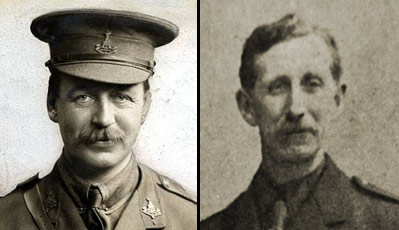Learn about the history of the Palestinian struggle for freedom, equality and justice by exploring major events in the history of their oppression on this day of the year.
23 November
 SECRET TREATY REVEALED BRITISH DUPLICITY
SECRET TREATY REVEALED BRITISH DUPLICITY
On this day in 1917, the new Bolshevik Government in Russia published every secret treaty the Tsarist regime had agreed with other powers to re-allocate colonies after WWI ended. These included the full text of the Sykes-Picot agreement, revealing the duplicity of British promises to Arabs and Zionists. The key para was: “Palestine, with the Holy Places is to be separated from Turkish territory and subjected to a special regime to be determined by agreement between Russia, France and Great Britain.”
كشفت المعاهدة السرية ازدواجية بريطانيا
23 نوفمبر
في مثل هذا اليوم من عام 1917 ، نشرت الحكومة البلشفية الجديدة في روسيا كل معاهدة سرية كان النظام القيصري قد وافق عليها مع القوى الأخرى لإعادة تخصيص المستعمرات بعد انتهاء الحرب العالمية الأولى. ومن ضمنها اتفاقية سايكس بيكو بنصوصها الكاملة ، التي تكشف ازدواجية الوعود البريطانية للعرب والصهاينة. كانت الفقرة الرئيسية هي: "يجب فصل فلسطين مع الأماكن المقدسة عن الأراضي التركية وإخضاعها لنظام خاص يتم تحديده بالاتفاق بين روسيا وفرنسا وبريطانيا العظمى
Britain and France plan to divide up the plunder after WWI
Sykes and Picot were the British and French representatives who negotiated a secret agreement to dismember the vast territory ruled by the Turks between them. When the Bolsheviks took power in Russia in November 1917, Trotsky, as Commissar for Foreign Affairs, discovered the Sykes-Picot treaty in Tsarist files. Realising the potential impact of disclosure, he published a summary of the Sykes-Picot text in the government newspaper Izvestiya on November 22, 1917. The disclosures created a sensation both inside and outside the corridors of power.
Publication of the Secret Treaties, Leon Trotsky, November 22, 1917
In undertaking the publication of the secret diplomatic documents relating to the foreign diplomacy of the tsarist and the bourgeois coalition governments...we fulfill an obligation which our party assumed when it was the party of opposition.
Secret diplomacy is a necessary weapon in the hands of the propertied minority which is compelled to deceive the majority in order to make the latter serve its interests. Imperialism, with its world-wide plans of annexation, its rapacious alliances and machinations, has developed the system of secret diplomacy to the highest degree...The Russian people as well as the other peoples of Europe and those of the rest of the world should be given the documentary evidence of the plans which the financiers and industrialists, together with their parliamentary and diplomatic agents, were secretly scheming...
Abolition of secret diplomacy is the first essential of an honorable, popular, and really democratic foreign policy. The Soviet Government...publishes the treaties and agreements which are no longer binding on the Russian workmen, soldiers, and peasants...The government of workers and peasants abolished secret diplomacy with its intrigues, ciphers, and lies. We have nothing to hide.
At stake was a struggle for British imperial domination and exploitation of the colonial world that was imperiled by the Bolshevik Revolution. The Sykes-Picot agreement was a British betrayal of the Arabs, whom the British had promised independence in the 1915 McMahon-Hussein correspondence in return for Arab military support in the war against the dying Ottoman Empire–Germany’s Middle East ally.
In December 1917 the Bolsheviks added fuel to anti-imperialist fire by calling on the Muslims of the Middle East and Asia as a “holy task” to “overthrow the imperialist robbers and enslavers.” There is no doubt that the Bolsheviks’ unqualified support for colonial national self-determination was a threat to the determination of the victorious World War powers to re-establish their colonial hegemony. Where 1919 Versailles Peace treaties provided for selective self-determination or none at all in the colonial world, Lenin’s “Decree on Peace” universalized this principle. For Churchill and his ilk, the Bolsheviks were the spoilers of the imperial world system.
Notwithstanding Britain’s fear of the Bolshevik Revolution, London’s primary motivation in championing the Zionist cause in Palestine was its immediate interests in the Middle East, which preceded the revolution. A Jewish state in Palestine, Churchill categorically declared in his February 1920 article, would be “in harmony with the truest interests of the British Empire.” Already, in 1916, British Prime Minister Lloyd George had privately declared his first priority was to obtain sole British suzerainty of Palestine, notwithstanding ostensible commitments to his French allies. Palestine would be invaluable as a bulwark to reinforce British rule in Egypt, which it had occupied in 1882, thereby securing the Suez Canal as a key conduit to British India, still the “jewel in the British crown.”
14-minute video: the implications of UK's Sykes-Picot treachery still with us today.
